stalingrad
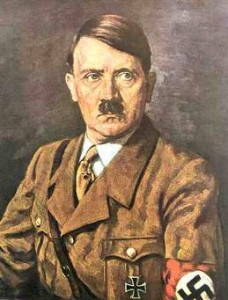
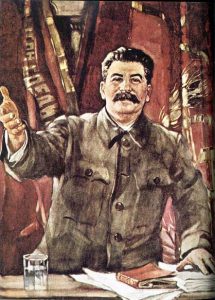 Generally speaking, a man’s word is his bond…as the saying goes, but when a man’s word can’t be trusted, well promises mean nothing, agreements mean nothing, partnership means nothing. The people who took Adolf Hitler at his word, found out the hard way, that Hitler was definitely not a man of his word. On June 22, 1941, after making an agreement, known as the Nazi-Soviet Pact of 1939, Nazi Germany at Hitler’s command, launched a massive invasion against the USSR. The agreement was basically that Germany and the USSR would not attack each other. Less than two years into the agreement, Hitler broke the agreement. He was most likely planning that invasion all along, but he needed to have the people of the USSR unaware of his plans. He needed to have them trust him, so his invasion would be a complete surprise attack.
Generally speaking, a man’s word is his bond…as the saying goes, but when a man’s word can’t be trusted, well promises mean nothing, agreements mean nothing, partnership means nothing. The people who took Adolf Hitler at his word, found out the hard way, that Hitler was definitely not a man of his word. On June 22, 1941, after making an agreement, known as the Nazi-Soviet Pact of 1939, Nazi Germany at Hitler’s command, launched a massive invasion against the USSR. The agreement was basically that Germany and the USSR would not attack each other. Less than two years into the agreement, Hitler broke the agreement. He was most likely planning that invasion all along, but he needed to have the people of the USSR unaware of his plans. He needed to have them trust him, so his invasion would be a complete surprise attack.
When he was ready, and aided by his far superior air force, Hitler sent his German army racing across the Russian plains. The German Army was given carte blanche in the invasion, and so they went about inflicting terrible casualties on the Red Army and the Soviet civilians. Of course, the German Army wasn’t alone in their attack. Their first targets of attack were Leningrad and Moscow. With the assistance of troops from their Axis allies, the Germans conquered the vast territory, and by mid-October the great Russian cities of Leningrad and Moscow were under siege. The Soviets held on, and the coming winter forced the German offensive to pause.
Hitler set his sights on the summer of 1942, and ordered the Sixth Army, under General Friedrich Paulus, to take Stalingrad in the south. Stalingrad was an industrial center and therefore, an obstacle to Nazi control of the precious Caucasus oil wells. The oil wells were a crucial part of the control process. The Army made advances across the Volga River in August, while the German Fourth Air Fleet reduced Stalingrad to burning rubble, killing more than 40,000 civilians. With the first attack behind them, Paulus ordered the first offensives into Stalingrad in September, estimating that it would take his army about 10 days to capture the city.
The ensuing battle was one of the most horrific battles of World War II. It was also quite likely the most important because it was the turning point in the war between Germany and the USSR. The USSR’s Red Army was furious and had an ax to grind over the ruined city and their lost loved ones and friends. Now, the German Sixth Army faced General Vasily Chuikov leading a bitter Red Army seeking revenge. They quickly transformed destroyed buildings and rubble into natural counter offensive fortifications. Then, using a method of fighting known as the Rattenkrieg or “Rat’s War,” the opposing forces broke into squads eight or 10 strong and fought each other for every house and yard of territory. The battle saw rapid advances in street-fighting technology. Things like a German machine gun that shot around corners and a light Russian plane that glided silently over German positions at night, dropping bombs without warning were birthed during this battle. The biggest problem the armies faced, however, was a lack of necessary food, water, or medical supplies, causing tens of thousands of soldiers to die every week.
The biggest miscalculation Hitler made was the resolve of Soviet leader Joseph Stalin, who was determined to liberate the city named after him. In November he ordered massive reinforcements to the area. On November 19, General Zhukov launched a great Soviet counteroffensive. German command underestimated the scale of the counterattack, and the Sixth Army was quickly overwhelmed by the offensive, which involved 500,000 Soviet troops, 900 tanks, and 1,400 aircraft. Within three days, the entire German force of more than 200,000 men was encircled. Before long, the Italian and Romanian troops at Stalingrad surrendered. That didn’t follow for the Germans, who hung on. Of course, Hitler would not let them surrender, so they waited…receiving limited supplies by air and waiting for reinforcements. Hitler ordered Paulus to remain in place and promoted him to field marshal, because no Nazi field marshal had ever surrendered.
The Germans lost as many lives to starvation and the bitter Russian winter, as they did to the merciless Soviet troops. Their supply line was completely cut off on January 21, 1943, when the last of the airports held by the Germans fell to the Soviets…completely cutting off their supplies. Despite Hitler’s threats, Paulus surrendered German forces in the southern sector on January 31, and on February 2 the remaining German troops surrendered. By the time Paulus surrendered, there were only 90,000 German soldiers still alive. They may 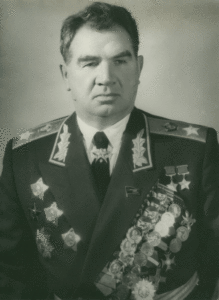
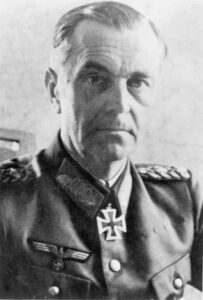 have thought they were among the lucky ones, but of the 90,000, only 5,000 survived the Soviet prisoner-of-war camps and make it back to Germany.
have thought they were among the lucky ones, but of the 90,000, only 5,000 survived the Soviet prisoner-of-war camps and make it back to Germany.
The Battle of Stalingrad was the turning point in the war between Germany and the Soviet Union. Chuikov had played such an important role in the victory. Later, it was he who led the Soviet drive on Berlin. As a reward, on May 1, 1945, he was given the right to personally accept the German surrender of Berlin. Paulus, who felt betrayed by Hitler, was among the German prisoners of war in the Soviet Union. He provided testimony at the International Military Tribunal at Nuremberg in 1946. After his release by the Soviets in 1953, he settled in East Germany.
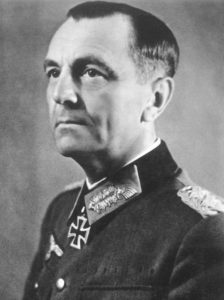
 As the Third Reich was losing its war against the world, German General Friedrich Paulus, who was commander in chief of the German 6th Army at Stalingrad, urgently requests permission from Adolf Hitler to surrender his position there. Paulus knew they had no chance, but Hitler refused. Of course, we all know that Hitler was insane. He would make his men fight to the death when there was no hope of winning the battle.
As the Third Reich was losing its war against the world, German General Friedrich Paulus, who was commander in chief of the German 6th Army at Stalingrad, urgently requests permission from Adolf Hitler to surrender his position there. Paulus knew they had no chance, but Hitler refused. Of course, we all know that Hitler was insane. He would make his men fight to the death when there was no hope of winning the battle.
Stalingrad was a prized strategic area, and the battle to take the city began in the summer of 1942. German forces assaulted the city, which was a major industrial center, but they had misjudged the Soviets. Despite repeated attempts and having pushed the Soviets almost to the Volga River in mid-October, as well as encircling Stalingrad, the 6th Army, under Paulus, and part of the 4th Panzer Army could not break past the adamantine defense of the Soviet 62nd Army. As their resources diminished. The Germans suffered diminishing resources, partisan guerilla attacks, and the cruelty of the Russian winter, all of which began to take their toll on the Germans. The Soviets made their move on November 19, launching a counteroffensive that began with a massive artillery bombardment of the German position. The assault began when the Soviets attacked the weakest link in the German force-inexperienced Romanian troops. Soviet soldiers took 65,000 soldiers prisoner that day. Then, the Soviets in a bold strategic move, encircled the enemy and launched pincer movements from north and south simultaneously, just as the Germans were encircling Stalingrad. It was at this point that the Germans should have withdrawn, and Paulus requested permission to withdraw, but Hitler wouldn’t allow it. He told his armies to hold out until they could be reinforced. Fresh troops would not arrive until December, and by then it was too late. The Soviet position was too strong, and the Germans were exhausted. They were out of options.
By January 24, the Soviets had overrun Paulus’ last airfield. His position was indefensible and surrender was the only hope for survival. Paulus urgently requested, “Let us surrender!!” Still, Hitler wouldn’t hear of it: “The 6th Army will hold its positions to the last man and the last round.” Paulus held out until January 31, when he finally surrendered. Of more than 280,000 men under Paulus’ command, half were already dead or dying, 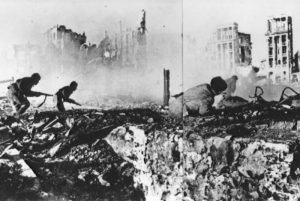
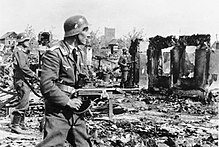 about 35,000 had been evacuated from the front, and the remaining 91,000 were hauled off to Soviet POW camps. Paulus eventually sold out to the Soviets altogether, joining the National Committee for Free Germany and urging German troops to surrender. Testifying at Nuremberg for the Soviets, he was released and spent the rest of his life in East Germany. Hitler was crazy, and his officers knew it, but there was little they could do about it.
about 35,000 had been evacuated from the front, and the remaining 91,000 were hauled off to Soviet POW camps. Paulus eventually sold out to the Soviets altogether, joining the National Committee for Free Germany and urging German troops to surrender. Testifying at Nuremberg for the Soviets, he was released and spent the rest of his life in East Germany. Hitler was crazy, and his officers knew it, but there was little they could do about it.

